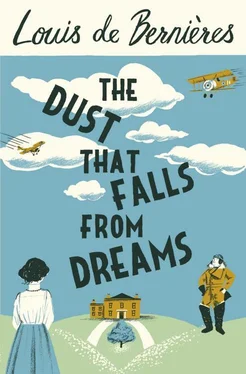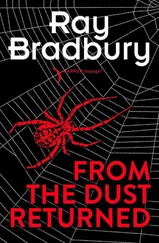Nothing could have prepared her for this, although she would soon become familiar with it. As the wreckage was unloaded onto the platform, the doctors scurried from one man to another, injecting morphine into those who would certainly die and so require no other attention.
She stood, fixated by horror. There was a stink of excrement and putrefaction that grew steadily worse as the bodies were laid out on the platform. She saw heads bound up with filthy bandages, white faces with black gaping mouths and wild eyes, black and green rotting stumps bound with improvised tourniquets, flesh bubbling up with blisters that gave off poison gas. She saw wounds patched with field dressings that had not been changed for days, and great pools of dried black blood across chests and stomachs. She saw faces without jaws, and skulls cracked like eggs. She saw bellies bound up with bandages that she somehow knew were retaining bowels, scooped up and thrust back into their cavities. There was a low moaning like that of cattle being driven from one field to another, interspersed with sharp shrieks, whimpering and keening. She heard prayers, appeals to mothers and sisters, the curt orders of doctors as they detailed the nurses and the stretcher-bearers. Some stalwart souls, eyes bulging with pain, made no sound at all.
Astounded by this horrible tumult, and sickened by the pall of smoke and wet sooty steam, it was a few moments before she realised that an officer was standing next to her, his arm in a bloody sling, one of the luckier ones. ‘You should see the ones who didn’t get this far,’ he said, in a strangely deadened voice. ‘I saw a man with his head compressed into his chest by a shell. The crown of his head was just poking out at the top.’ He paused, said, ‘Major Frederick Arbuthnot, Irish Guards,’ and fell silent, leaving Rosie wondering whether that had been the name of the casualty, or whether he had been introducing himself. ‘Better get to the sawbones,’ said the officer, and he set off on foot towards the hospital.
Rosie knew that she had to do something. She knelt by a doctor who was checking a soldier for signs of life, and said, ‘What can I do?’
‘VAD?’ asked the doctor without looking up at her.
‘Yes.’
‘Trained or untrained?’
‘Untrained. Just arrived.’
‘Well, the first thing you do is ask “shrapnel or bullet”. Treatment depends entirely upon which one it is. Now just find someone who’s dying and hold his hand. Say prayers. Say what you like. Just don’t get in the way.’
Rosie knelt by a skinny runt of a boy from the East End. He was breathing stertorously, and no one was tending to him. She took his hand, which was cold, clammy and limp. At first she could not see what was wrong. As she looked at his face, overwhelmed by pity, the tears began to roll in huge drops down her cheeks. Suddenly he turned his head and looked at her, holding her gaze. ‘Don’t cry for me, miss,’ he said. He began to convulse and shudder, then closed his eyes.
The Grampians
19 June 1915
My dear Rosebud,
I am writing to you with bad tidings, but I did think that you would like to be amongst the first to know.
I am very sorry to have to tell you that both Sidney and Albert Pendennis were killed on the 16th of June in the same engagement at Hooge, where they were caught by machine-gun fire, side by side, as they went over the top. Half of their battalion apparently perished with them.
I do not know many of the details. Mrs Pendennis came round to tell us, and, as you can imagine, the poor woman can hardly speak and is utterly prostrate with grief and despair. I shudder to think of the agony of those who lose all their sons. You may remember that the same thing happened to two of the Pitt brothers, who perished in the South African war, when Daniel and Archie were fortunately too young to join them. As you may know, the Springfields have lost all their sons, and so have the Baskervilles and the Revells. I have never regretted only having daughters, and even less do I regret it now.
Please do write to Mr and Mrs Pendennis, should you find yourself with a spare moment. I expect it would be consoling for them, and they would like to feel that even though all their sons have gone, they still have a daughter of a kind.
Let me repeat, dear Rosebud, how proud I am of what my brave and pretty bairns are doing in this war. If it were possible for a father’s pride to bear his daughters up, then you would be shoulder-high.
Your loving and grumpy and proud old daddy,
Hamilton McCosh
PS The new workshop for making artificial limbs is up and running in Woolwich. Just as you suggested, I have largely employed the wounded, and a marvellous job they are doing too. I am going to set up another workshop to make the wooden struts for aeroplanes.
PPS My idea for a new kind of golf ball has made a wee bit of progress, but of course it seems frivolous under these circumstances, and I don’t have much enthusiasm for it at present.
THE WORLD WAS still absorbing the shock of the Lusitania ’s sinking. In Stepney a mob was setting fire to the shop of a German-born baker, and stoning the policemen who had arrived to intervene. Rosie was with Bouncer at her station at the window seat, as usual, watching life go by in the street outside. She was exhausted from her work at Netley, and was taking advantage of a weekend off, having managed to coordinate matters with Ottilie so that they would both be at home at the same time. The casualties from Artois had not yet begun to come in. The rag-and-bone man had just gone by in his cart, his head bowed down with drowsiness and drink, but every few minutes he would raise it and call ‘Raggabone! Raggabone!’ Rosie always felt sorry for his horse, a ruined old grey, and she had told the servants that if ever they took something out to the cart, they should take the horse a carrot. It had not occurred to her that the rag-and-bone man himself was equally in need, and that he and his horse were starving together.
A short, stocky man in khaki came to the gateway, stood for a second, confirmed that he was at the right address, and strode up the drive. She listened to the man’s hobnails on the stone steps, and then for the tinkling of the brass bell. She wondered if she should call someone to answer the door, but the footman had gone to war, and there was no way of knowing where Millicent was, so she answered it herself. War had changed even the protocol of answering doors.
‘Can I help you?’ she asked the soldier, before noticing that he wore the insignia of the Honourable Artillery Company.
‘Yes, good morning,’ replied the soldier, removing his cap. He pulled a handkerchief from his cuff and mopped his brow. ‘Scuse me, miss, but I’ve been going at a right old trot.’
He put the handkerchief back in his cuff, and held out his hand. ‘Leonard Hutchinson, corporal. Well … acting corporal. Might you be Miss Rosemary McCosh? Or might you be one of her sisters?’
‘Yes, I’m Rosemary.’
‘Then it’s you I’d be wanting to speak to, if you can see your way clear.’
‘Is it about Ash?’
‘It is, miss.’
‘Then you’d better come in. Can I get you some tea?’
‘That would be very congenial. Thank you, miss.’
‘Come through to the drawing room. Shall I take your cap?’
‘That’s very good of you, miss. I don’t want to cause you no trouble, though.’
‘It’s no trouble at all. I understand that you were one of the men who carried Ash to the first-aid post. I have been wanting to thank you. And anything I can do for you is no trouble, I do assure you.’
Читать дальше












